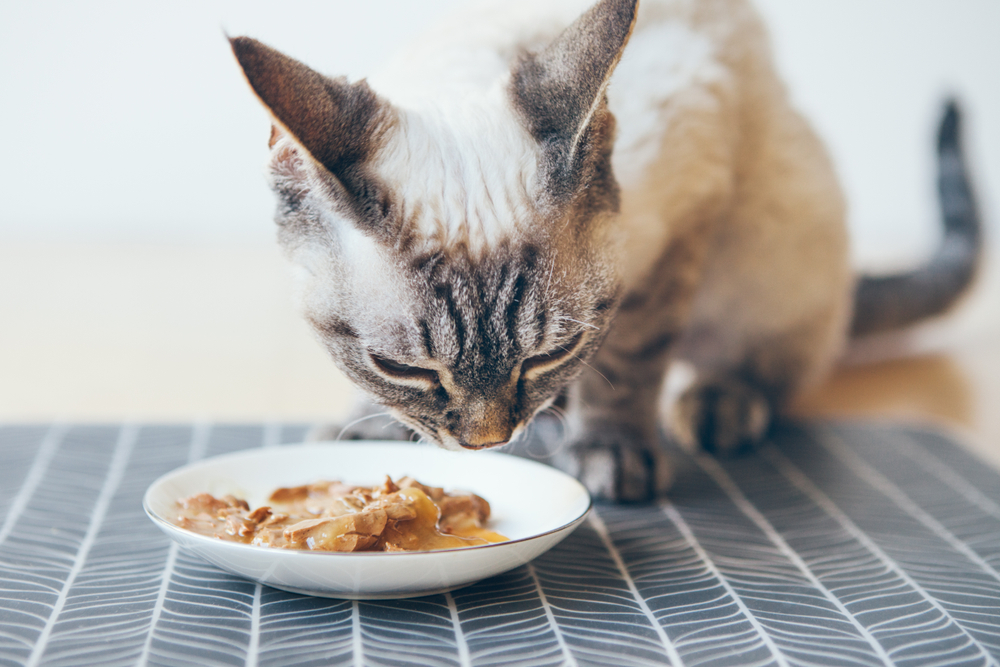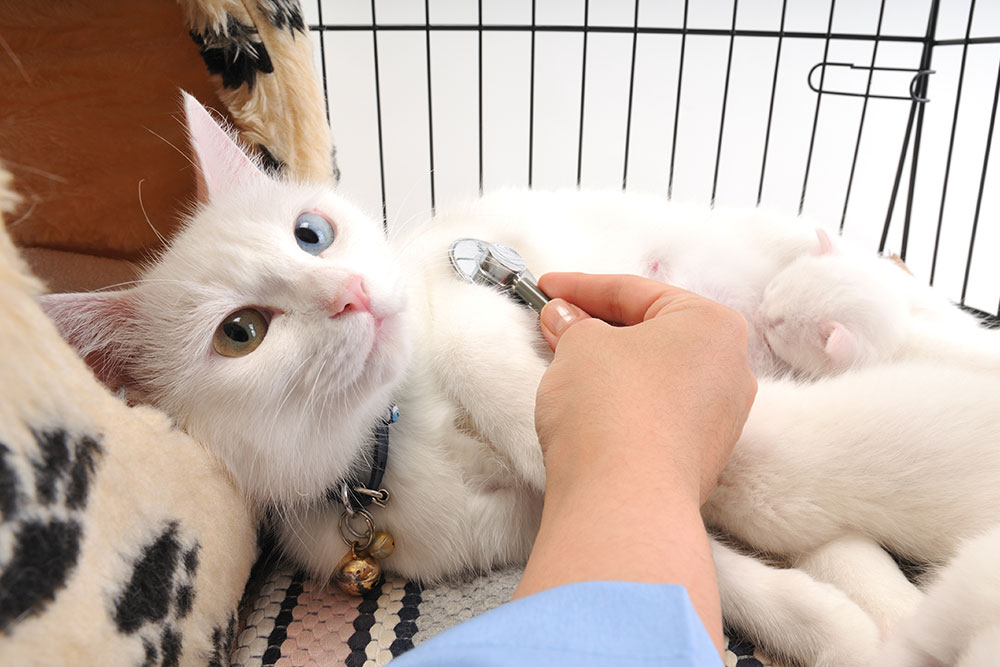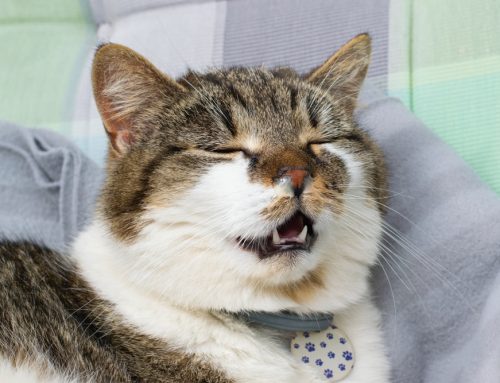Is Your Cat at Risk? What Every Owner Should Know About Pancreatitis
Cats are experts at hiding discomfort. A skipped meal, a quieter-than-usual day, or an isolated episode of vomiting may not seem serious, but in cats, these subtle changes can be signs of something much more dangerous. One condition that often lurks behind vague symptoms is pancreatitis, or inflammation of the pancreas.
At Skyway Animal Hospital in St. Petersburg, Florida, we often evaluate cats with pancreatitis. This disease can progress quickly into a life-threatening emergency if left untreated. Some cats respond well to supportive care and can recover at home, while others require hospitalization to manage severe dehydration, pain, or secondary complications. Knowing what to watch for and when to act can make all the difference in your cat’s outcome.
Understanding Pancreatitis in Cats
The pancreas is a small but essential organ. It produces digestive enzymes to break down food and helps regulate insulin to balance blood sugar. When the pancreas becomes inflamed, these enzymes leak into surrounding tissues, causing pain and widespread inflammation. Because the pancreas influences multiple body systems, pancreatitis does not just affect digestion. It can lead to cascading health issues.
Unfortunately, feline pancreatitis is often underdiagnosed. Cats rarely show obvious signs, and many owners mistake the early symptoms for “just an upset stomach.” Without prompt veterinary care, however, the consequences can be severe.
What Triggers Pancreatitis in Cats?
Pinpointing the exact cause of pancreatitis in cats can be challenging. Instead, veterinarians look for common risk factors:
- Cats with inflammatory bowel disease (IBD) often develop pancreatitis at the same time.
- Conditions such as diabetes and liver disease make cats more vulnerable.
- Trauma, infection, or metabolic disorders can trigger inflammation.
- Dietary indiscretions, like sudden food changes or high-fat treats, may play a role.
Some cats also develop triaditis, a syndrome in which pancreatitis, IBD, and liver disease occur together. This requires careful, long-term management, as flare-ups are more likely if all conditions are not addressed.
Subtle Symptoms That Signal Serious Trouble
Cats rarely cry out when they are in pain. Instead, owners may notice subtle shifts in behavior. Warning signs of pancreatitis include:
- Energy changes. Cats that seem withdrawn, move stiffly, or hide more often may be showing lethargy.
- Loss of appetite. Skipping meals for more than 24 hours is never normal in cats and can quickly lead to dangerous complications.
- Digestive upset. Vomiting and diarrhea are common signs of pancreatic inflammation.
- Pain. Cats with abdominal discomfort may resist being picked up, crouch low to the ground, or curl tightly when resting.
- Hydration. Reduced water intake or fluid loss from vomiting quickly becomes dangerous.
Cats may show only one or two of these signs, which is why any change in eating habits, energy, or litter box use deserves attention.
Why Acting Fast Can Save Your Cat’s Life
Unlike some conditions that can wait for a scheduled exam, pancreatitis can escalate within hours. In severe cases, inflammation leads to:
- Severe dehydration requiring IV fluids.
- Hepatic lipidosis, or fatty liver disease, which occurs when cats stop eating.
- Diabetes, triggered by damage to the pancreas.
- Sepsis, a life-threatening body-wide infection.
Cats that arrive early in the course of illness often respond well to treatment and recover quickly. Those that wait may need hospitalization, assisted feeding, or more intensive monitoring. Quick action is the difference between a manageable illness and a critical emergency.
The Diagnostic Process: How Vets Confirm Pancreatitis
Because symptoms overlap with other illnesses such as IBD, kidney disease, or infections, diagnostic testing is essential. At Skyway Animal Hospital, our diagnostic services include:
- Bloodwork to check pancreatic enzymes, hydration status, and organ function.
- Ultrasound or X-rays to visualize the pancreas, liver, and intestines.
- Additional tests to identify complications or rule out other diseases.
With an in-house lab and digital imaging, results are often available the same day. That means treatment can begin quickly, improving your cat’s chances for recovery.
Treatment Options and What Owners Should Expect
Supportive Care in the Clinic
Cats with pancreatitis almost always need supportive therapy. Treatment is tailored to each case but often includes:
- IV or subcutaneous fluids to restore hydration, correct electrolyte imbalances, and support circulation.
- Pain relief. Pancreatitis is very painful, and untreated pain often prevents cats from eating. Medications are chosen carefully for safety and effectiveness.
- Anti-nausea medication to reduce vomiting and restore appetite.
- Appetite stimulants if nausea is controlled but appetite remains poor.
- Nutritional support. Cats that do not eat for even a few days risk liver disease. Assisted syringe feeding or temporary feeding tubes may be recommended.
Managing Pancreatitis Long-Term
If pancreatitis is linked to IBD, diabetes, or liver disease, those conditions must be managed at the same time. Recovery can take days in mild cases, but severe pancreatitis may require weeks of support. Our team provides stabilization and then partners with your family veterinarian to ensure smooth follow-up care.
Tips to Lower Your Cat’s Risk of Pancreatitis
Not every case can be prevented, but there are steps you can take to reduce your cat’s risk:
- Feed a consistent, balanced diet formulated for cats.
- Skip the table scraps. Human foods are too rich for cats, but safe treat alternatives can be offered in moderation.
- Maintain a healthy weight. Overweight cats are significantly more prone to inflammation and pancreatitis.
- Schedule regular wellness exams so your veterinarian can monitor for early signs of disease.
Small preventive steps at home, combined with timely medical care, give your cat the best chance of avoiding this painful condition.
Pancreatitis FAQs for Cat Owners
Can it come back? Yes. Flare-ups are common, especially if underlying conditions are not controlled.
Is it contagious? No. Pancreatitis does not spread to other cats or to people.
How long is recovery? Mild cases may improve in days, while severe cases take weeks and may require hospitalization.
What should cats eat? Your veterinarian will recommend a bland, digestible diet. Avoid sudden food changes, which can make recovery harder.

Trusted Care for Cats with Pancreatitis in St. Petersburg
Pancreatitis is more than just an upset stomach. It is a painful, potentially life-threatening disease that requires urgent care. At Skyway Animal Hospital, we use advanced diagnostics, individualized treatment plans, and compassionate support to stabilize cats quickly and protect their long-term health.
If your cat is vomiting, refusing food, or acting unusually quiet, do not wait. Contact us today or visit our experienced team. With early action, many cats recover fully and return to the comfort of home.







Leave A Comment